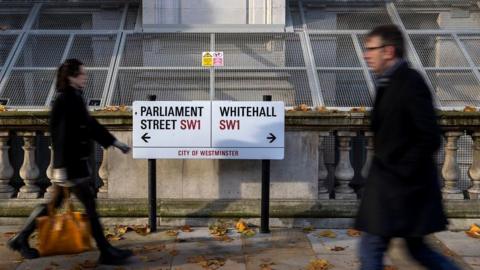Civil Service Internship Reforms: A Class War Disguised as Social Mobility
Hello everyone. Let’s talk about the civil service internship reforms – because, apparently, the government’s latest bright idea to “improve diversity” has managed to alienate half the people it supposedly wants to help. Yes, it’s one of those moments where policy comes wrapped in a bow, but the label just says, “Congratulations, you’re excluded.”
The Premise: More Working Class Representation
On paper, it sounds noble. Get more “working class” people into the civil service. Improve representation. Close the gap between policy makers and real-life experience. We’ve heard this sales pitch before – it’s the political equivalent of promising “better matchmaking” in a competitive online game, and then realising your rank has been reset to Bronze I.
But the execution? Oh dear. The eligibility criteria now hinge on what your parents were doing when you were 14. Not where you studied, not your financial hardship, not your own grit or achievements – nope, just a neat little classification from the Social Mobility Commission’s occupational chart. So if mum was a nurse or dad was a taxi driver, congratulations – you’re now too “posh” for working class status. Because apparently public-sector nurses are basically aristocracy. Who knew?
Adam: Finally Has a Chance
Let’s start with Adam Allen, who grew up in a challenging household, parents without university degrees, surviving on factory and warehouse jobs. He hustled his way to three A*s and got into Warwick, and until now, had written off the civil service internship as a game rigged in favour of people with legacy cheat codes – private networks and insider knowledge. For him, this reform feels like finally getting a fair lobby. At last, someone has turned friendly fire off.
Nell: “Working Class but Not Working Class Enough”
Then there’s Nell, whose mum’s a nurse and dad’s a town planner – both firsts in their families to attend university. She’s gunning for the civil service, has done her prep, knows about the Fast Stream, but under these new criteria, she is suddenly categorised as “above” working class because… her mum wears scrubs instead of a high-vis jacket? This is like queuing for a raid, ticking all the eligibility boxes, and getting rejected because your armour is “too shiny.”
This isn’t levelling the playing field; it’s building a brand-new one and sticking a “Do Not Enter” sign for anyone deemed insufficiently gritty. Ironically, Nell now feels more disconnected from the civil service she’s spent years aiming for – disenfranchised by the very legislation claiming to expand opportunity.
Hannah: Diversity Door is Open
Hannah Begum is sold on the reforms. Coming from Yorkshire with parents in community and handyman work, she’s seen the chasm between the South-East elite and the rest of the country. To her, this is a much-needed social buff – a quest item that might finally let provincial players get into the Endgame Guild. She admits the controversy but insists that without reforms like these, the civil service remains in danger of gatekeeping power for those who already hold it.
Peter: Feeling Shut Out by His Own Country
And finally, Peter Murphy – Cambridge history student, proud patriot, and the kind of guy who’d queue overnight for a launch-day patch if the game was called “Serve the Nation.” His Irish immigrant background and shop-fitter granddad are badges of pride, but under new rules, he’s locked out. His take? This isn’t just unfair; it’s a betrayal of meritocracy. It sends the message that the country doesn’t want him on the team – that skill, dedication, and loyalty are less important than where his parents fell on an arbitrary list 7 years before he could legally drink.
The Doctor’s Note
As your friendly ranting medic, I’d diagnose this policy with an acute case of “classificationitis” – a swelling of bureaucratic arrogance that impairs normal functioning. It’s a top-down prescription where the side effects include disenfranchisement, resentment, and occasional outbursts of “What’s the bloody point?” syndrome.
Final Verdict
This reform might help some – Adam and Hannah prove that. But for Nell and Peter, it’s a kick in the morale stats, a mid-match nerf when they were finally learning the ropes. If the ultimate goal is a truly representative civil service, maybe the dev team should take feedback from all the players, not just the ones lucky enough to meet a flavour-of-the-month eligibility rule. Because right now? This feels less like an accessibility patch and more like locking half the community out of the server.
And that, ladies and gentlemen, is entirely my opinion.


Images represent the diverse faces and pathways involved in the civil service internship debate – from everyday Westminster streets where policies are made, to the intimate, vibrant lives affected by these reforms.
Article source: ‘Are we not working class enough?’ Students divided on civil service internship reform, https://www.bbc.com/news/articles/cm213gd5gjpo



